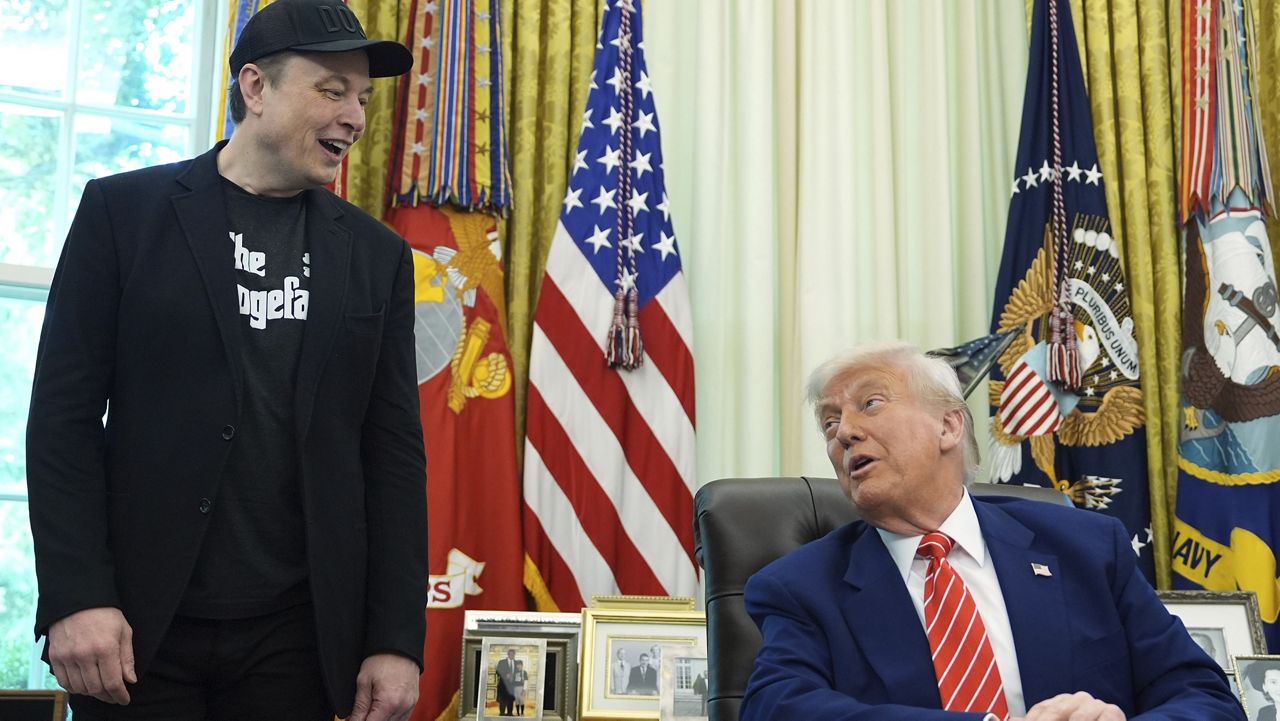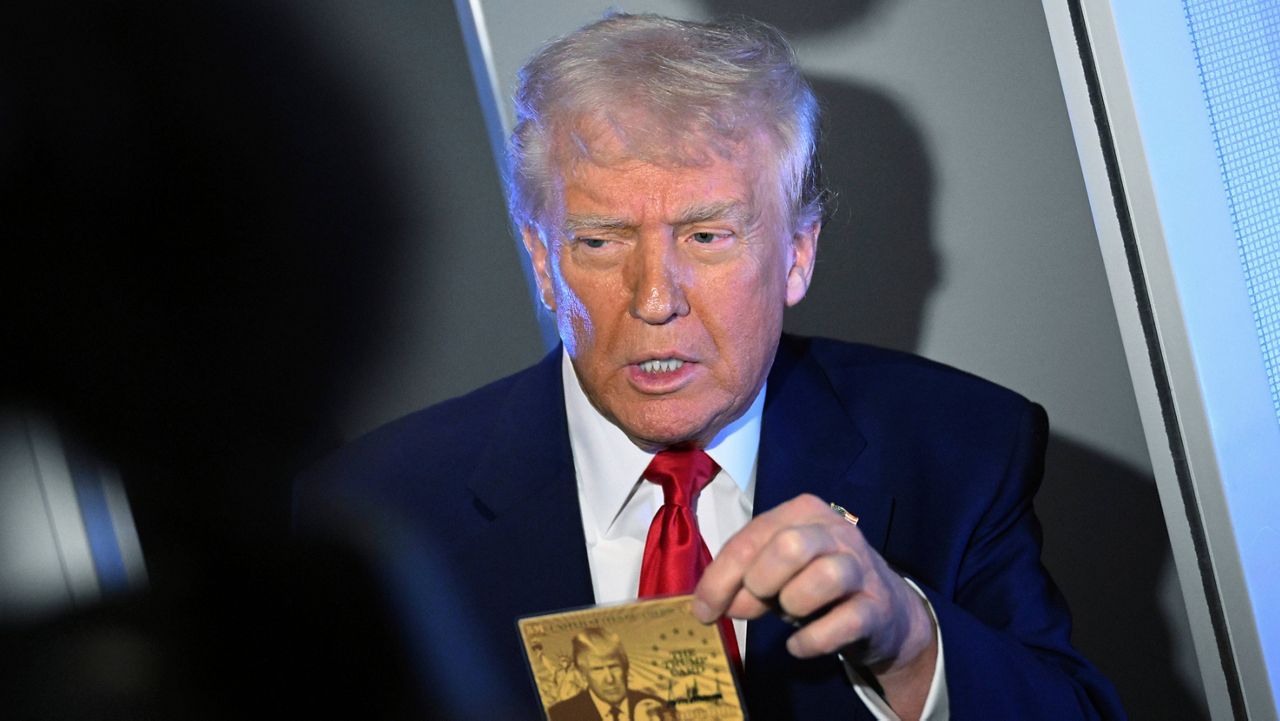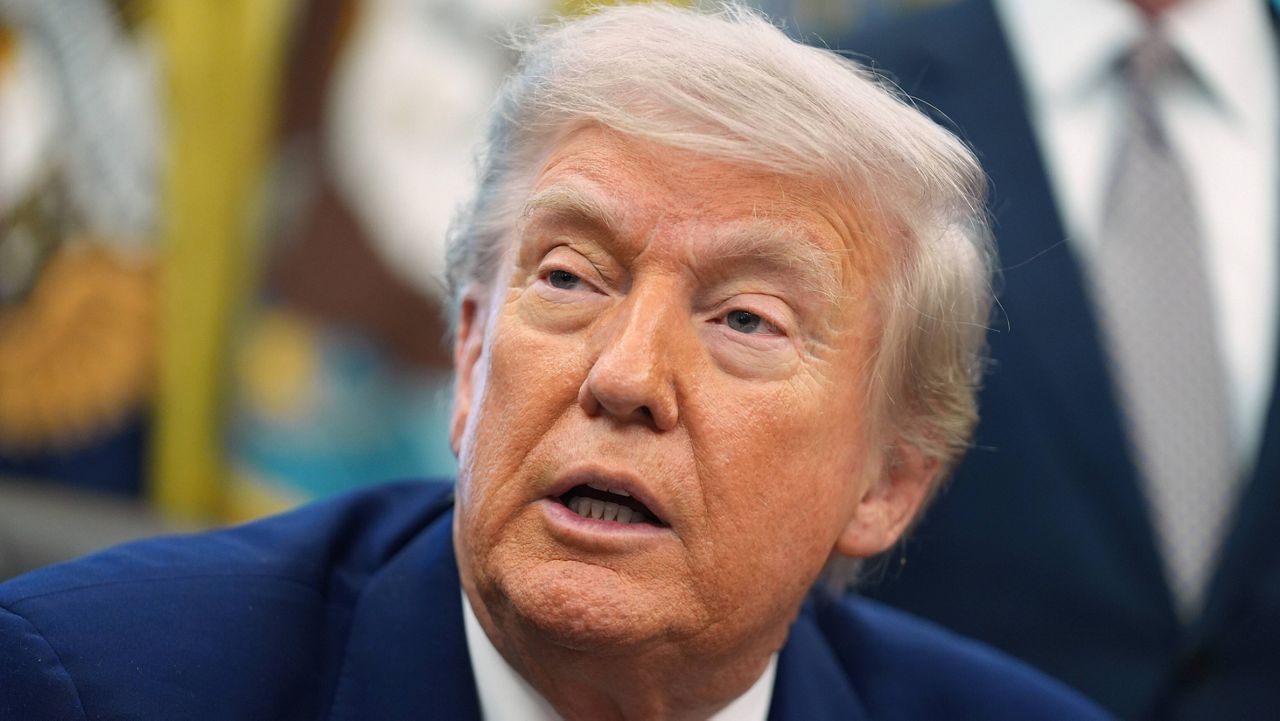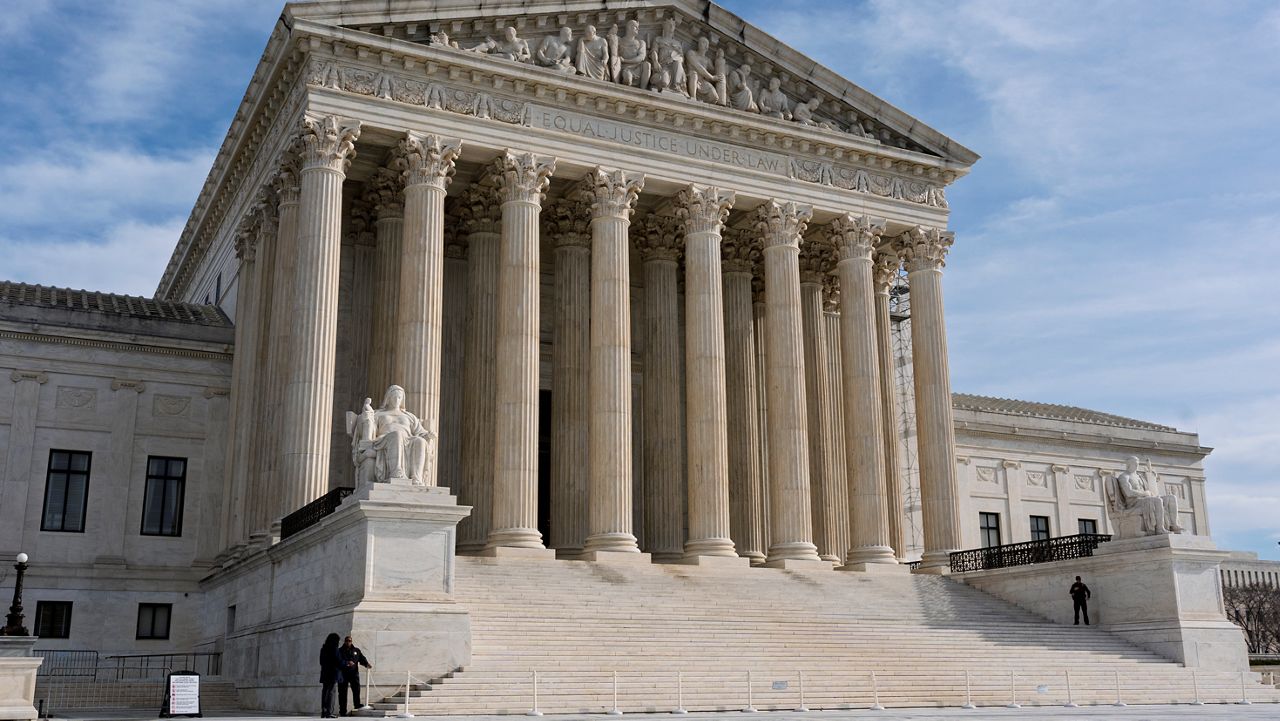President Joe Biden welcomed Japanese Prime Minister Fumio Kishida to the White House on Wednesday for an official visit that marked Biden’s latest bid to bolster ties with a key ally in the Indo-Pacific amid shared unease over China.
“The alliance between Japan and the United States is the cornerstone of peace, security and prosperity in the Indo-Pacific and around the world,” Biden said at Wednesday morning’s arrival ceremony, making clear the value the U.S. places in its partnership with Japan in ensuring security in the complicated region.
And the two world leaders used the prime minister’s White House visit to announce what Biden called “significant steps” to further that effort, including modernizing command and control structures to facilitate better planning between U.S. and Japanese forces and joining with Australia to create an air missile defense system.
“This is the most significant upgrade in our alliance since it was first established,” Biden declared during a joint press conference with Kisihda Wednesday afternoon.
Biden also noted that the U.S., United Kingdom and Australia were “exploring” how Japan could join the AUKUS partnership, which aims to equip Australia with nuclear-powered and conventionally-armed submarines and is a move Beijing has opposed. Senior administration officials on a call with reporters Tuesday cautioned, however, that discussions on the possibility wil take “a period of months.”
The president on Wednesday said the announcements set a “new benchmark” in military cooperation between the two allies. Senior administration officials said the U.S. is looking to “flip the script” on China’s efforts to isolate American allies in the region. The U.S. has expressed concern about Beijing’s actions in the South China Sea in particular.
At Wednesday’s press conference, however, Biden made sure to emphasize the U.S. alliance with Japan is “purely defensive in nature.”
“It's not aimed at any one nation or a threat to the region,” Biden said. “This is about restoring stability in the region and I think we have a chance of doing that.”
He also noted he spoke with Chinese leader Xi Jinping earlier this month and both leaders committed to continuing communication to ensure “nothing slips, as they say, between the cup and the lip.”
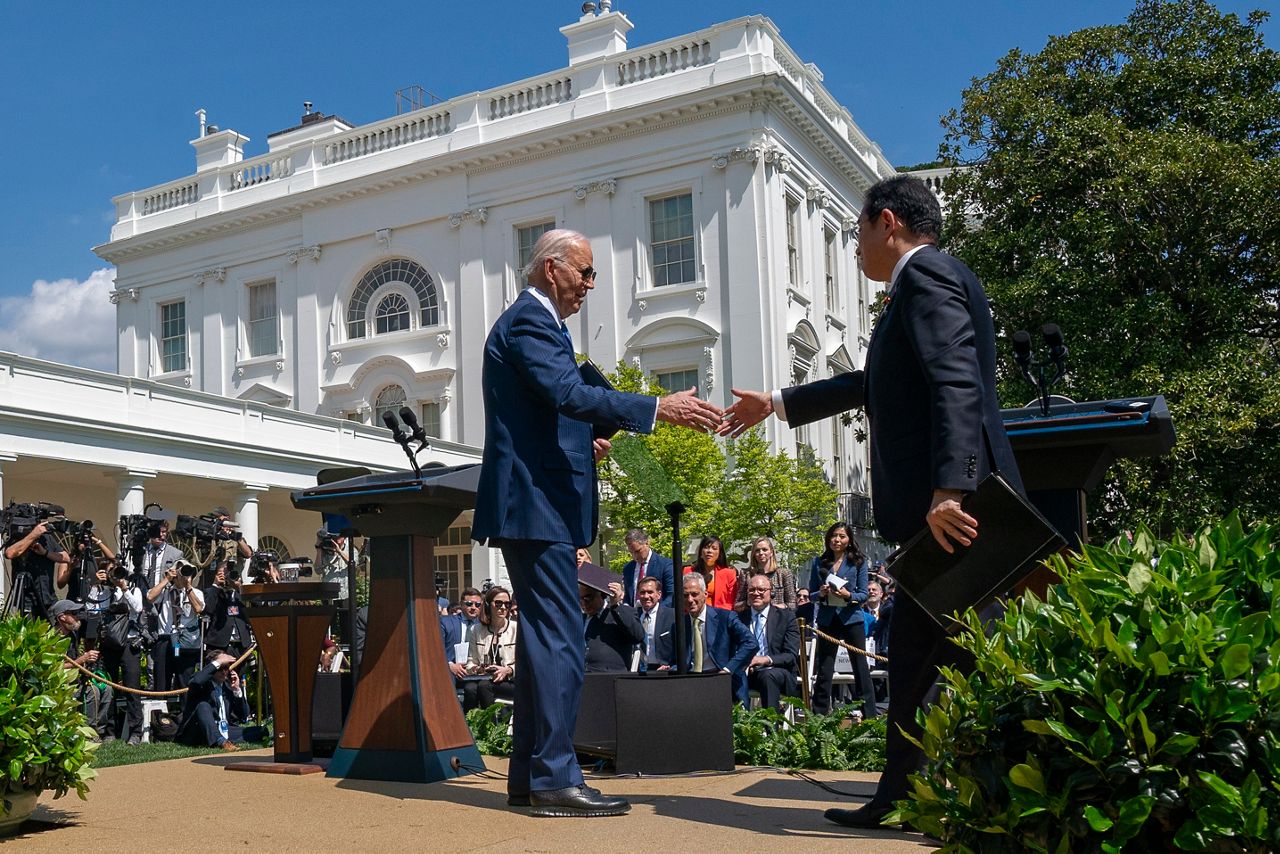
The defense commitments were part of more than 70 new items the pair is announcing during Kishida’s visit to the U.S. spanning different topics, administration officials said.
Biden on Wednesday also noted, for instance, that two Japanese astronauts will join future U.S. missions in space. One of them will become the first non-American on the moon’s surface, he added.
The two countries, also announced and promoted research initiatives, including a a joint AI project between Carnegie Mellon and Keio University in Tokyo, a venerable private research university; a second AI project between the University of Tsukuba, a national university; and a monetary scholarship to fund cultural exchange programs between American and Japanese high school students.
The festivities on Wednesday kicked off with the arrival ceremony full of pageantry on the White House South Lawn Wednesday morning. There, the president declared the U.S.-Japan relationship “Closer, stronger and more effective than ever before in history.”
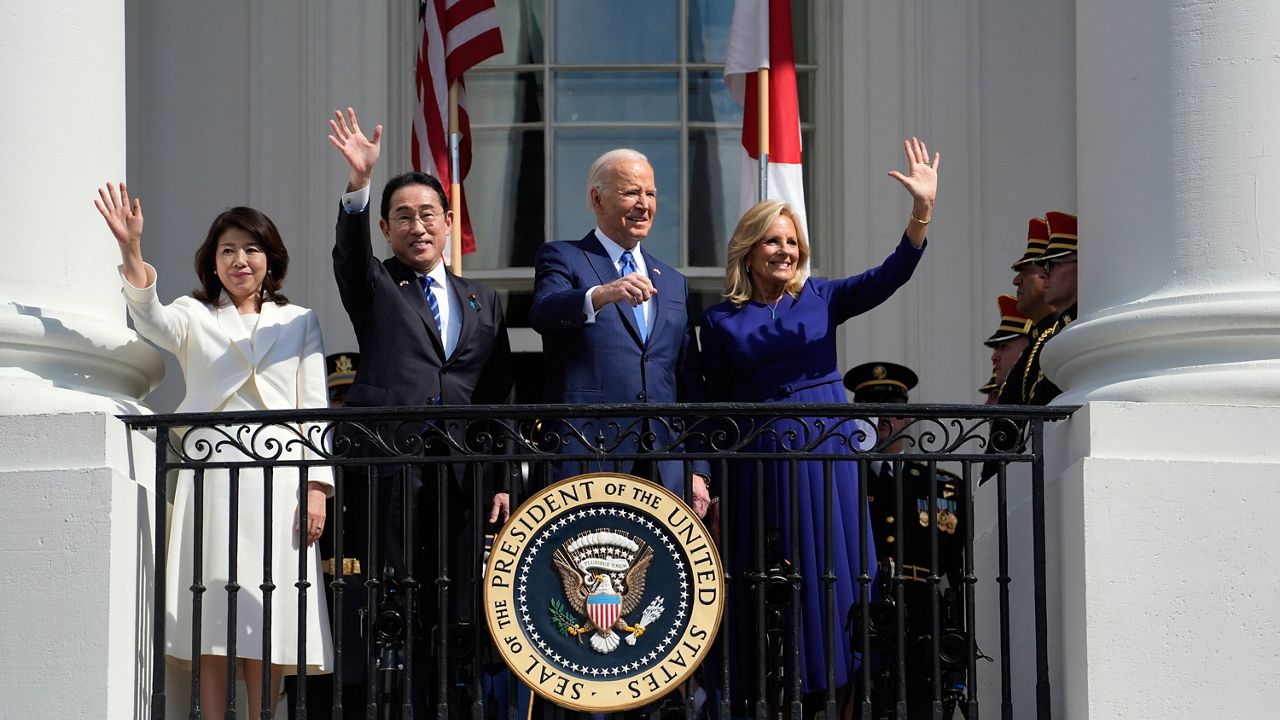
The U.S. leader praised his Japanese counterpart as a “visionary and courageous leader” lauding Kishida for isolating and condemning Russia amid its invasion of Ukraine, presiding over “profound changes in defense” and his leadership of the G-7 last year.
Senior administration officials told reporters Tuesday that under Kishida, Japan has committed to raising its defense spending and acquired Tomahawk counterstrike capability, which they say will aid in our collective deterrence.
“Today our economic relationship is one of the strongest and the deepest in the world,” Biden said. “Our democracies are beacons of freedom shining across the globe and the ties of friendship, family, connect the Japanese and American people.”
Kishida noted Japan would “join hands with American friends” to take on the challenges and difficulties facing the world. The Japanese leader announced he is sending an additional 250 cherry trees to the U.S. to mark the country’s upcoming anniversary.
The pair sat down in the Oval Office for a meeting following the official arrival ceremony. The announcements on new commitments on military, space and more came when the leaders shared a stage in the White House Rose Garden for a joint press conference in the afternoon.
But Wednesday’s celebratory events also come at a moment of public tension between the leaders after Biden announced last month that he does not support a planned sale of U.S. Steel to Nippon Steel of Japan. In December, Nippon Steel said it planned to buy the Pittsburgh-headquartered U.S. Steel for $14.1 billion.
“I stand by my commitment to American workers,” Biden said during Wednesday’s press conference when asked about the topic. He added, however, that he also stands by his commitments to Japan as a partner.
Earlier in the press conference, Biden touted the economic relationship between the two nations, noting Japan is the top foreign investor in the U.S. and vice versa.
The U.S. president commended Kishida as “brave” for his participation in the “historic” summit he hosted at the Camp David presidential retreat last year between the U.S., Japan and South Korea – another move coordinated, in part, to shore up alliances in the region with the goal of countering China.
Japan and South Korea put aside years of frosty relations to join the meeting, as the nations come together over concerns about China’s actions in the Pacific and North Korea’s nuclear threats.
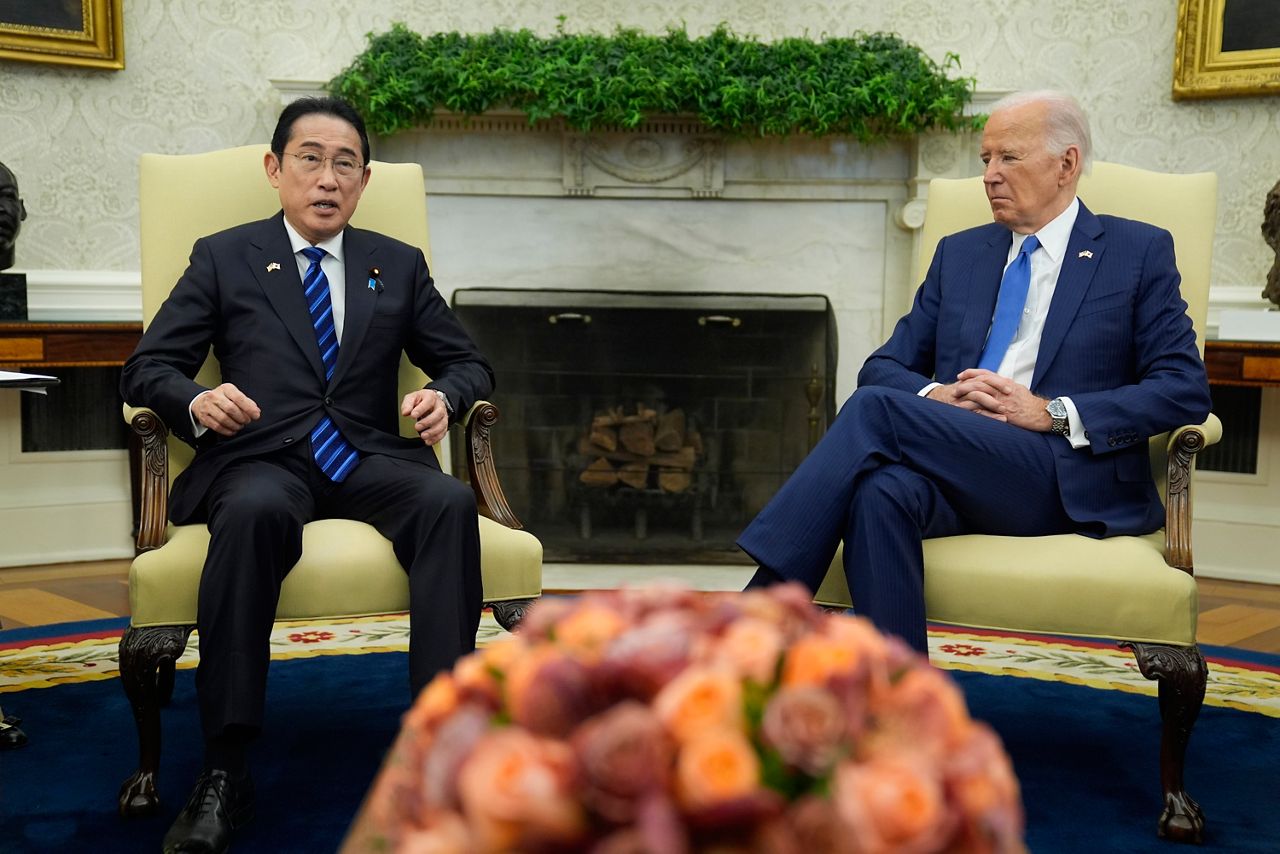
Festivities will continue Wednesday night with a formal state dinner in the White House’s East Room. First lady Jill Biden and White House Social Secretary Carlos Elizondo told reporters on Tuesday that the dinner’s decor was partly inspired by Japanese gardens and will seek to celebrate springtime.
Wednesday will mark the fifth state dinner of Biden’s presidency, with four of the five honoring fellow Indo-Pacific nations: South Korea, India and Australia. Biden’s first state dinner went to France.
The Bidens took Kishida and his wife, Mrs. Yuko Kishida, to a local Washington restaurant for dinner Tuesday night, when they also exchanged gifts. Earlier on Tuesday, Kishida laid a wreath at Arlington National Cemetery, which Biden noted during Wednesday morning’s ceremony he “truly” appreciated.
The Japanese prime minister is set to address a joint session of Congress at the U.S. Capitol on Thursday.
Spectrum News' David Mendez contributed to this report.






